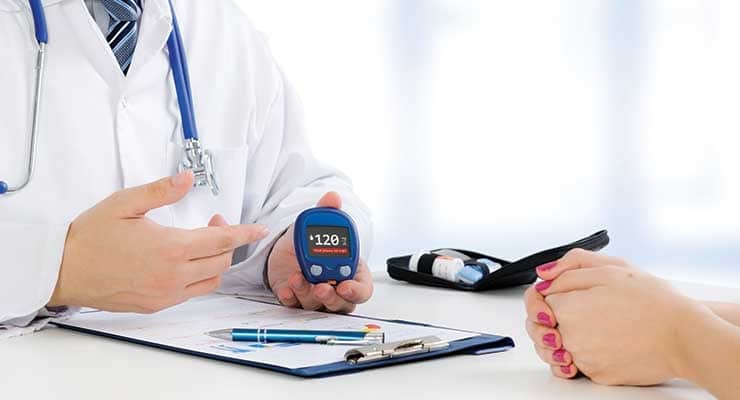In a world plagued by ongoing hostilities and violence, people with diabetes often find themselves in a dire situation, deprived of essential resources. This article explores the various strategies to address the critical issue of diabetes care during armed conflicts and offers guidance for individuals and organizations.
Diabetes Care During Armed Conflict
“For war, no one is prepared.” These phrases, identified with Dr. Waseem Alzaanin, a doctor volunteering in Gaza with the Palestine Red Crescent Society, capture the unanticipated challenges faced by individuals with diabetes during armed conflicts. Dr. Alzaanin, who himself lives with type 1 diabetes, has witnessed the devastating effects of war on people with chronic health conditions. Fill out this form to see if you or a friend qualify for Continuous Glucose Monitors.
Challenges Faced by People with Diabetes in Conflict Zones
In regions of armed conflict like Palestine, Ukraine, Iraq, Yemen, and many more, nearly two billion people live in constant fear and uncertainty. For those with life-threatening conditions like diabetes, access to even basic medical care becomes a monumental challenge.
Self-Education and Stress Management
In times of armed conflict, managing diabetes becomes exceptionally difficult due to extreme stress and limited access to medical care and supplies. To cope with such challenges, self-education and stress management are crucial. Dr. Brij Mohan Makkar, a senior diabetologist, emphasizes the importance of diabetes self-management education and support (DSMES) services. These services empower individuals to make informed choices about managing their condition, ultimately leading to improved health outcomes.
Must Read About CGMs in noncritical care hospitals optimizes glycemic control
Maintaining prescribed medical regimens is equally important. Adhering to medications, recommended diets, and lifestyle changes as much as possible is essential. Regular self-monitoring of blood glucose and blood pressure, along with wound care, should be prioritized. While the impacts of stress on diabetes control are undeniable, engaging in stress relief activities, such as exercise and deep breathing, can help regain control.
Safeguard Your Medications and Build an Emergency Supply Kit
In armed conflict scenarios, predicting when violence may erupt is impossible. Therefore, creating an emergency plan is critical. Dr. Boris Mankovsky, an endocrinologist in Ukraine, stresses the necessity of having a backup supply of medications, especially insulin, that can last at least 2-3 months. Proper storage of medicine is essential, and innovative solutions like 3D-printed coolers may become invaluable in the future.
Alongside medications, individuals should consider having a backup food supply, as access to suitable meals can be disrupted during emergencies. Additionally, emergency medical kits should include a diabetes identification card, a personal evacuation plan, and physician and emergency contact information.
Also, read about MiniMed 780G and Omnipod 5 AID Systems Shine
What Healthcare Workers and Organizations Can Do
Healthcare workers on the front lines of armed conflict face numerous challenges when treating individuals with chronic conditions like diabetes. It is crucial for aid workers to receive specialized training in managing diabetes in resource-restricted environments. Providing them with the necessary tools, like glucometers and rapid-acting insulin, ensures they are prepared for diabetes-related emergencies.
Language barriers can also hinder communication with displaced populations. Using visuals or symbols on medication labels can help simplify instructions, especially when translators are unavailable.
Healthcare organizations and professionals can provide online consultations if internet access is available, bridging gaps in care. Apps like CardMedic can aid in communication between healthcare workers and patients, offering sign-language videos and speech-to-text translation services.
Federal agencies can contribute by providing free medical care when possible. This was exemplified during the war in Ukraine when co-payments for insulin were canceled and regulations around prescribing medications were relaxed to accommodate the surge in patients.
The cooperation of governments, international organizations, pharmaceutical companies, and other aid agencies is essential during humanitarian crises. They can facilitate the delivery of life-saving medications, such as insulin, to regions affected by conflict through innovative means like drones.
Read Guide about Wegovy Dosage Guide: The Best Way For Weight Loss
Supporting Diabetes Care During Armed Conflict
If you or someone you know is preparing for or already facing a crisis while living with diabetes, numerous resources and organizations are available to offer support:
Diabetes Disaster Response Coalition
International Diabetes Federation
Diabetes Humanitarian Aid Coalition
American Diabetes Association
Local government council
Evacuation centers
Volunteers such as the people who operate HAM radios along with those who recently retired in the medical field. Donors of medical aid overseas, including pharmaceutical companies and Insulin For Life
The International Federation of the Red Cross and the Red Crescent Societies, the United Nations, the World Health Organization, and Doctors Without Frontiers are all examples of non-governmental organizations.
conclusion
In conclusion, diabetes care during armed conflict is a complex challenge that requires collective efforts from individuals, healthcare workers, and organizations. By prioritizing education, stress management, and emergency preparedness, we can provide vital support to those living with diabetes in crisis-stricken regions. It is crucial that the global community comes together to ensure that individuals with diabetes receive the care and resources they need during these trying times.


